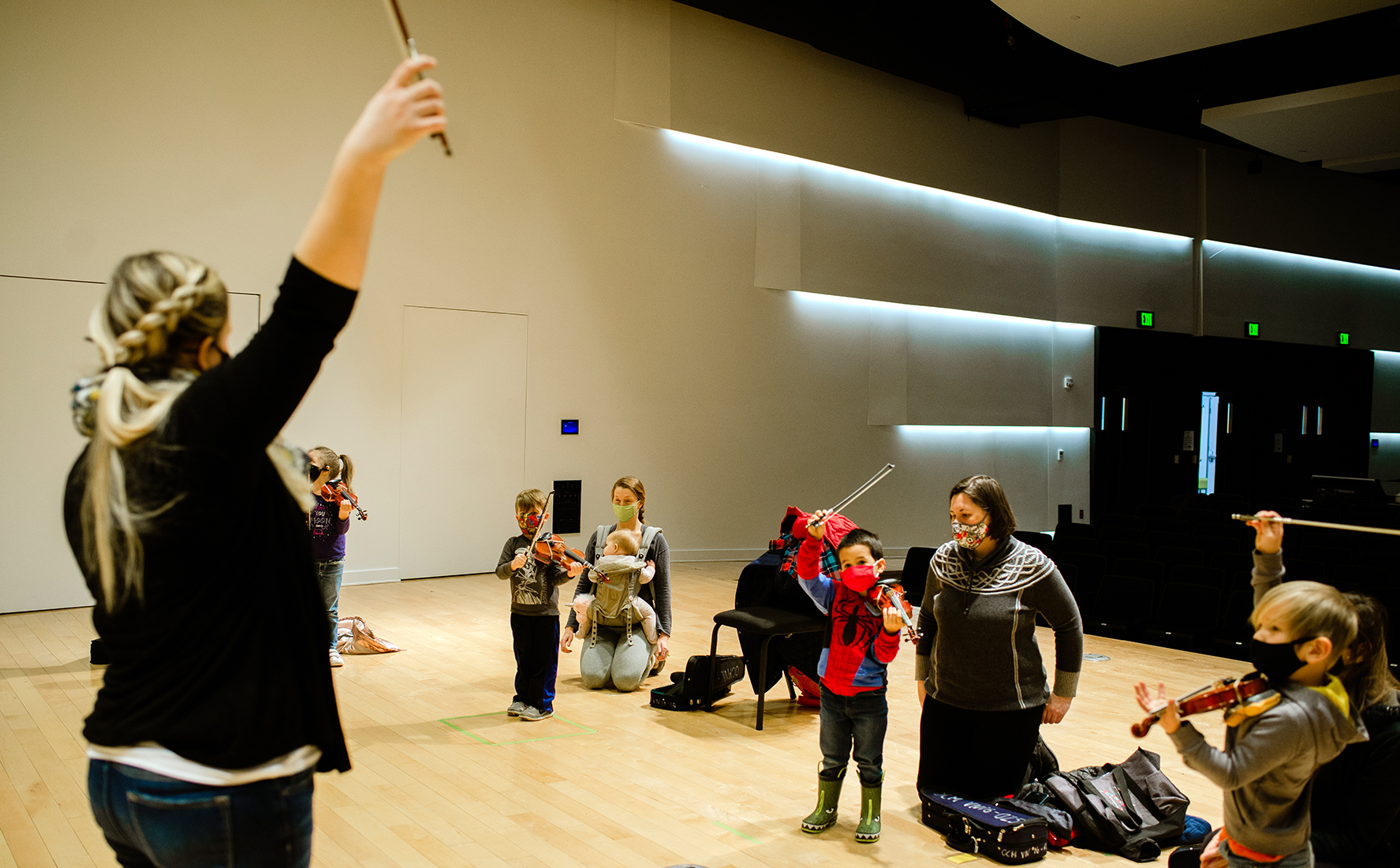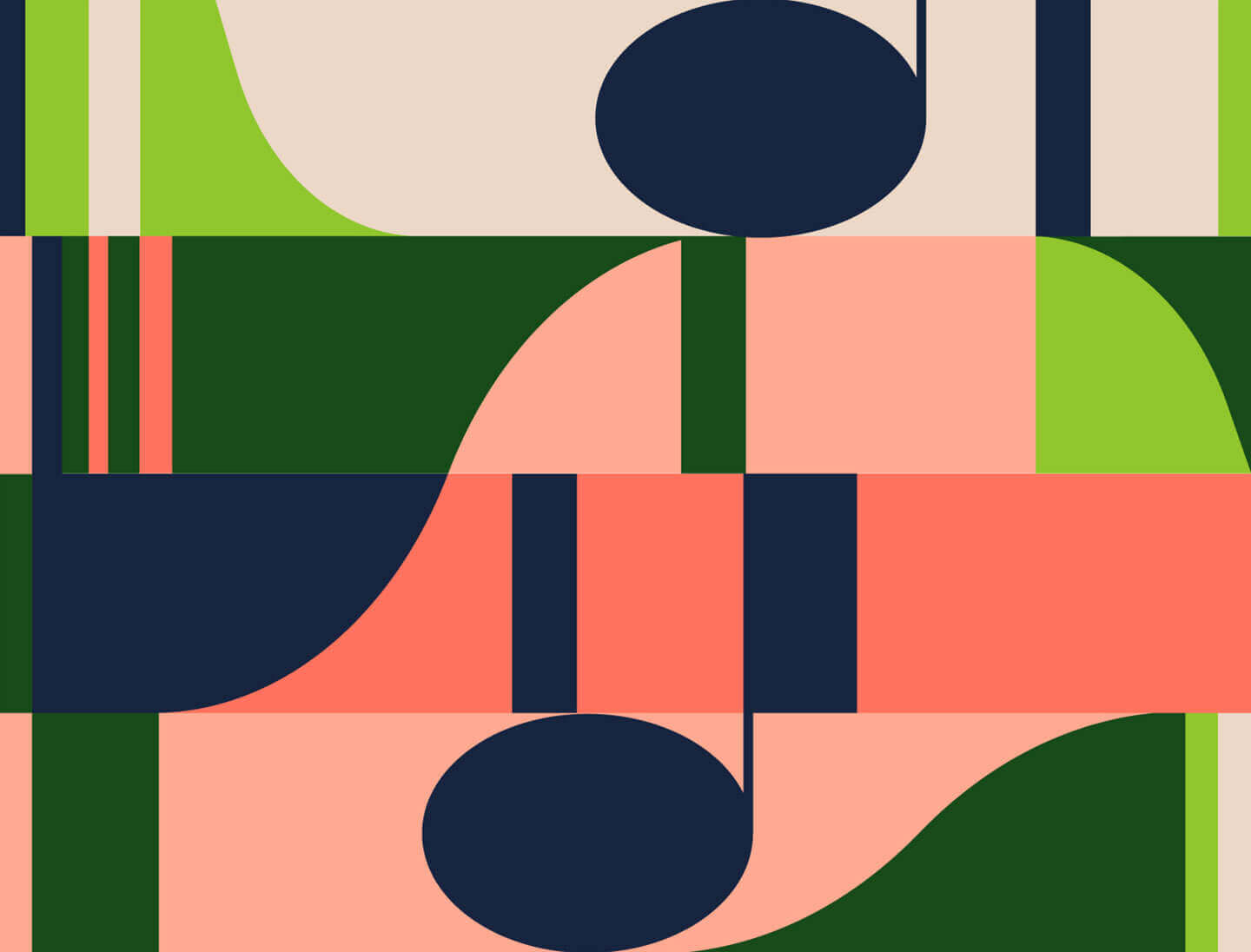March 15th, 2021 • Music Education
Why Study Music?
Studying music has a huge number of benefits, some more familiar than others, but all incredibly positive for academic, social, and emotional outcomes. When we play music, all areas of the brain are activated. The three learning styles of visual, auditory, and kinesthetic are all needed to learn a piece of music. Reading the notes (visual), hearing the pitches (auditory), and physically playing the music (kinesthetic) produce an all-encompassing learning experience.

John was about 9 years old. He’d been studying violin with me for about 5 years and it was my studio recital day. Right before it was time for him to perform, he walked quickly over to where I was sitting and asked in a whisper, “How does my piece start again?” Remembering how nervous I was on recital day as a child, I was blown away by his total confidence and apparent unconcern about remembering how his piece “went” only moments before the performance. Incidentally, John played a spectacular performance.
I would consider John a good example of a typical music student. He practiced regularly, but also enjoyed a busy schedule of sports, music, and other extracurricular activities. Luckily, his parents had started him on the violin at a very young age. Music lessons had developed discipline, stage presence, and confidence which far exceeded his non-musical peers. But these valuable life skills were just the beginning…
Studying music also has a huge number of benefits, some more familiar than others, but all incredibly positive for academic, social, and emotional outcomes. When we play music, all areas of the brain are activated. The three learning styles of visual, auditory, and kinesthetic are all needed to learn a piece of music. Reading the notes (visual), hearing the pitches (auditory), and physically playing the music (kinesthetic) produce an all-encompassing learning experience.
Music also engages the emotional centers of the brain. Listening to music relieves stress, anxiety, and even depression. These benefits are accentuated even more when the person is playing the music rather than just listening.
Auditory advantages are obviously impacted greatly with music study. As one would expect, listening skills are enhanced. Specifically, musicians are able to perceive speech in a noisy setting more easily. To perform a piece well requires differentiation between important melodic material and less important harmonic parts. Keeping your ear tuned to the important part is natural to musicians. Excelling at this skill is quite advantageous to a student in a distracting classroom who needs to focus on the teacher’s academic content.
Trained musicians also have longer attention spans and are able to keep sounds in their working memory for longer than non-musicians. A performer must concentrate for the entire duration of their piece. As students advance, repertoire can be up to 15 minutes or more in length. With rampant shortened attention spans due to television, cell phones, and a culture steeped with instant gratification, to name just a few, the music lesson provides an arena for developing extended focus and expanded memory to counteract this growing problem.
Additionally, language processing skills are another auditory advantage. Toddlers exposed to basic rhythm activities have better pre-reading skills. Adolescents who engage in rhythm exercises also show improved reading skills. Language is inherently rhythmic. Having a good sense of pulse enhances the listener’s ability to hear individual syllables in speech.
In research with children ages 5-7, they found significant improvement in motor skills and measurable structural changes in the brain for the motor, auditory and frontal regions after only 15 months of music study. And, the good news is they’ve found these changes last for a lifetime! With only a few years of training in childhood, the effects of improved memory, hearing in a noisy environment, and better focus are still present in adulthood.
Finally, innovation is highly regarded in today’s workforce with fast-paced lifestyles and quickly changing technology. Innovation requires the acute ability to identify problems and a relentless drive to find a solution. Every music lesson centers around finding the problem areas and developing a practice plan to solve the issue, as well as exploring a huge range of musical choices in timbre, textures, and phrasing options. Often, students will come up with multiple solutions with several approaches to a challenging passage. Creativity is explored not only in the musical interpretation of the piece, but also in devising the processes used to reach the polished product.
My student John was an outstanding student academically and a confident young person who played violin through high school and beyond. His success was due, at least in part, to the skills he developed through his musical experiences. It’s never too late to get started, so help your child decide what instrument they’d like to play. The reasons to study music are so numerous. Since it has lifetime effects, it’s too beneficial for anyone to bypass. Pick up your favorite instrument and start making those brain connections today!
For more information, contact the Omaha Conservatory of Music at 402-932-4978.

